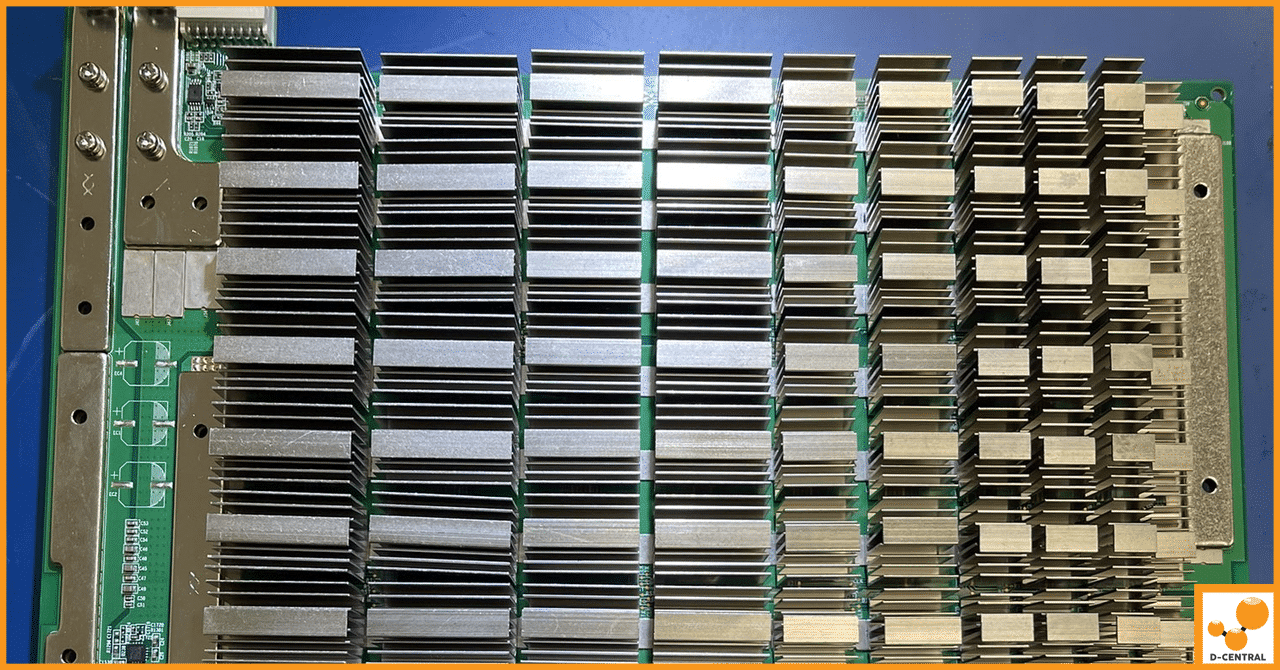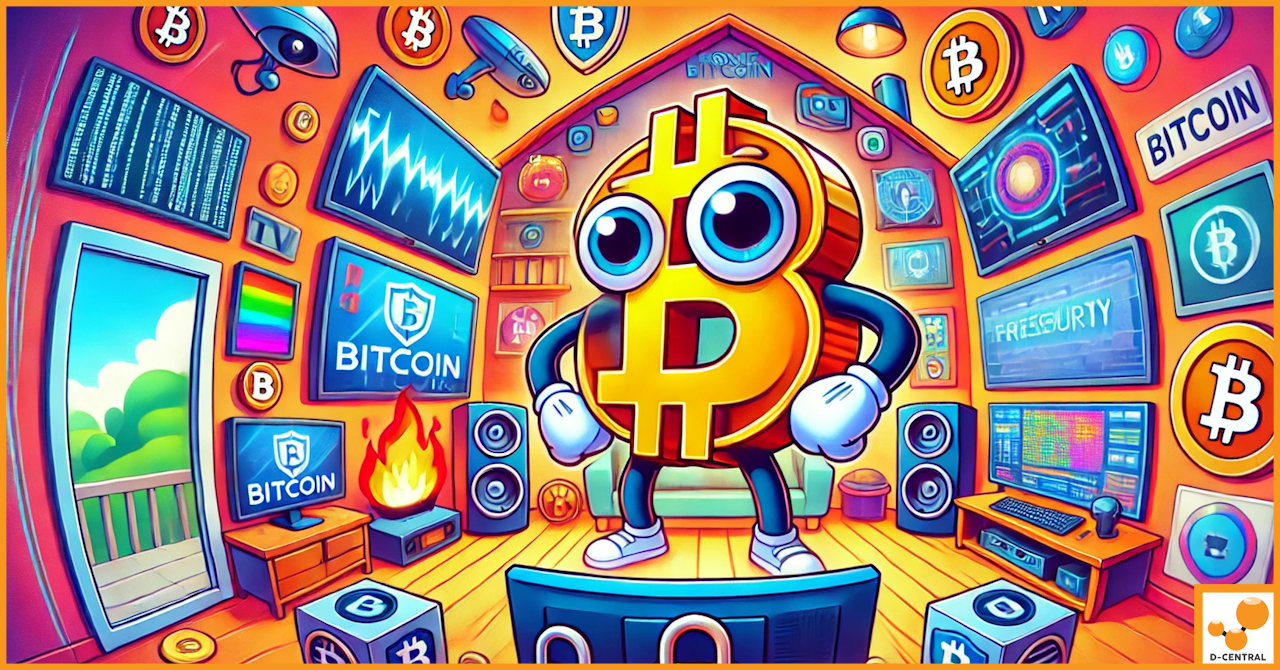
Examining the Antminer S19j Pro+ Heatsink Design: Insights and Implications
The Antminer S19j Pro+ is a cutting-edge Bitcoin mining machine from Bitmain, a leading manufacturer of cryptocurrency mining hardware. This
4479 Desserte Nord Autoroute 440, Laval, QC H7P 6E2

Throughout history, the concept of sound money has been a cornerstone of human civilization’s economic development. Sound money, characterized by its durability, divisibility, portability, and scarcity, has enabled societies to trade efficiently, save for the future, and build prosperous economies. From the use of precious metals like gold and silver as early forms of currency to the establishment of standardized coinage, the evolution of money has been intrinsically linked to the progress of human societies. This reliable form of money encouraged long-term planning and investment, fostering an environment where individuals and communities could thrive and expand over generations.
However, the advent of modern fiat currencies has introduced new challenges to this age-old concept of sound money. Unlike their tangible counterparts, fiat currencies are not backed by physical commodities but by the trust in the issuing government’s stability. This shift has led to a departure from the principles of sound money, as fiat currencies can be easily manipulated and are often subject to inflationary pressures. The ability of central banks to print money at will has resulted in frequent devaluations of fiat currencies, eroding the purchasing power of savings and discouraging the culture of long-term investment.
This transition has significantly contributed to the rise of consumerist cultures, where immediate gratification is often prioritized over sustainable financial planning. The emphasis on spending and consumption, fueled by easy credit and constant inflation, has led to a short-term orientation in financial decision-making. Individuals are incentivized to spend rather than save, as the value of their money diminishes over time, leading to a cycle of consumption that overlooks the importance of building lasting wealth.
The modern financial landscape, shaped by these challenges, calls for a reevaluation of our monetary systems and the exploration of alternatives that can restore the principles of sound money. In this context, the emergence of Bitcoin and its underlying technology presents a compelling solution, offering a decentralized and deflationary currency that aligns with the historical virtues of sound money. As we delve deeper into the economics behind Bitcoin as a global settlement network, it’s essential to consider how this innovative technology can address the shortcomings of fiat currencies and pave the way for a more stable and prosperous financial future.
In the wake of the 2008 financial crisis, a revolutionary alternative to traditional financial systems was introduced to the world: Bitcoin. Conceived by an individual or group under the pseudonym Satoshi Nakamoto, Bitcoin was not just a new form of currency but a radical reimagining of how money could be managed and transacted globally. Unlike fiat currencies, Bitcoin is decentralized, relying on a distributed ledger technology known as blockchain. This innovative approach to currency management eliminates the need for central authorities, such as banks and governments, to oversee and control financial transactions.
Bitcoin’s design as a global settlement network is one of its most defining and transformative features. It is built to facilitate direct peer-to-peer transactions without the intermediation of traditional financial institutions. This design is rooted in the principles of sound money, with a capped supply of 21 million bitcoins, ensuring scarcity and helping to prevent inflation. Each bitcoin is divisible into 100 million smaller units, known as satoshis, making it highly divisible and adaptable to a wide range of transaction values.
The potential of Bitcoin to restore sound monetary policies lies in its ability to offer a form of money that is not subject to the whims of policy changes or the economic interests of any single country. Its decentralized nature means that it operates on a global scale, transcending national borders and offering a uniform currency for international trade and settlement. This global reach and the immutable nature of the blockchain make Bitcoin an attractive option for secure, transparent, and efficient transactions, reducing the reliance on opaque and often cumbersome traditional banking systems.
Moreover, Bitcoin’s consensus mechanism, which requires network participants to agree on the validity of transactions, ensures the integrity and security of the financial system without the need for central oversight. This not only reduces the potential for fraud and corruption but also democratizes financial transactions, making them accessible to anyone with an internet connection.
As Bitcoin continues to evolve and gain acceptance, its role as a global settlement network is becoming increasingly significant. It offers a viable alternative to those disillusioned by the limitations and instabilities of fiat currencies, promising a return to more sound monetary policies that prioritize long-term value, financial sovereignty, and economic freedom. The emergence of Bitcoin marks a pivotal moment in the history of money, challenging the status quo and paving the way for a financial system that is more inclusive, transparent, and resilient.
While Bitcoin represents a groundbreaking advancement in the realm of digital currencies, its main-chain, the primary public ledger where all transactions are recorded, faces certain challenges when it comes to individual consumer payments. These challenges primarily revolve around high transaction fees and slow confirmation times, aspects that are not ideally suited for the day-to-day transactions that form the backbone of consumer spending.
The design of Bitcoin’s main-chain emphasizes security and decentralization, which, while being its greatest strengths, also contribute to its limitations for consumer payments. Each transaction on the Bitcoin network requires verification by miners, who use significant computational power to solve complex cryptographic puzzles. This process, known as proof of work, ensures the integrity and security of the network but also leads to slower transaction times. During periods of high network congestion, transactions can take from several minutes to several hours to be confirmed, a delay that is impractical for everyday purchases like a cup of coffee or groceries.
Furthermore, the cost of transactions on the Bitcoin network can vary significantly, influenced by factors such as network congestion and the size of the transaction in bytes. During times of peak demand, transaction fees can rise substantially, making small, everyday transactions economically unfeasible. This variability and potential high cost pose a significant barrier to the use of Bitcoin’s main-chain for routine consumer payments.
Another significant challenge in the adoption of Bitcoin for daily transactions is the general public’s unfamiliarity with cryptocurrency technology. The concepts underlying cryptocurrencies, including blockchain, private and public keys, and digital wallets, can be complex and daunting for the average consumer. This lack of understanding and comfort with the technology can hinder its widespread adoption for everyday use. Moreover, the volatility of Bitcoin’s value adds another layer of complexity for consumers and merchants alike, making it difficult to price goods and services consistently in Bitcoin.
These challenges highlight the need for solutions that can bridge the gap between Bitcoin’s innovative potential and its practical application for consumer payments. While Bitcoin’s main-chain serves as a robust and secure platform for global settlement and value storage, alternative solutions are required to make it a viable option for the fast-paced and diverse needs of consumer transactions.
In response to the challenges faced by Bitcoin’s main-chain in handling consumer payments, the Lightning Network emerges as a pivotal development, poised to significantly enhance Bitcoin’s utility as a global currency. This innovative layer-2 protocol operates atop the Bitcoin blockchain, designed to enable instant, low-cost transactions, thereby addressing some of the core issues that have hindered Bitcoin’s adoption for everyday use.
The Lightning Network introduces a novel concept of payment channels, which are essentially private conduits established between two parties. Once a channel is open, these parties can conduct an unlimited number of transactions without needing to broadcast them to the main Bitcoin blockchain immediately. This mechanism drastically reduces the burden on the main-chain, allowing for a scalable increase in transaction throughput.
One of the most compelling benefits of the Lightning Network is the significant reduction in transaction fees. Because transactions occur off-chain and are only settled on the main blockchain once a payment channel is closed, the costs associated with individual transactions are minimized. This makes microtransactions and small daily purchases via Bitcoin not only feasible but economically viable, opening up a whole new realm of possibilities for Bitcoin’s use in everyday commerce.
The Lightning Network also offers near-instantaneous transaction confirmations, a stark contrast to the potential delays experienced on the main Bitcoin blockchain. This speed is achieved by bypassing the need for mining and the associated proof-of-work for each transaction within the payment channels. As a result, transactions on the Lightning Network can be completed in a matter of seconds, regardless of the state of congestion on the main-chain, making it an ideal solution for real-time payments and financial exchanges.
Another significant advantage of the Lightning Network is the enhanced privacy it offers. Transactions conducted within the Lightning Network’s payment channels are not publicly broadcasted on the blockchain until the channel is closed. This means that the details of individual transactions remain known only to the parties involved until they decide to settle the final state on the main-chain. This level of privacy adds an extra layer of security and anonymity to transactions, making it an attractive feature for users who value confidentiality in their financial dealings.
The introduction of the Lightning Network represents a crucial step forward in the evolution of Bitcoin, addressing its scalability and usability challenges head-on. By enabling fast, low-cost, and private transactions, the Lightning Network not only makes Bitcoin a more practical option for everyday payments but also solidifies its position as a versatile and global currency. As adoption and development of the Lightning Network continue to grow, it holds the promise of unlocking the full potential of Bitcoin as a medium of exchange, alongside its established role as a store of value.
The Lightning Network, as a layer-2 solution built on top of the Bitcoin blockchain, brings a host of advantages to users, fundamentally transforming the way Bitcoin transactions are conducted. By addressing key issues related to scalability, cost, and speed, the Lightning Network enhances the overall user experience, making Bitcoin a more practical and versatile digital currency for everyday transactions. Here are some of the specific advantages that the Lightning Network offers to its users:
One of the most immediate benefits of the Lightning Network is the dramatic reduction in transaction fees. Since the Lightning Network processes transactions off the main Bitcoin blockchain, it avoids the high fees associated with Bitcoin’s main-chain, especially during periods of peak congestion. This makes it economically viable to perform small transactions, such as buying a cup of coffee or paying for a service online, using Bitcoin. The lower transaction costs open up a wide range of microtransaction use cases that were previously impractical due to the disproportionate fees on the main-chain.
The Lightning Network enables transactions to be settled almost instantaneously. This is a significant improvement over the Bitcoin main-chain, where transactions can take from several minutes to several hours to be confirmed, depending on network congestion. The Lightning Network achieves this speed by allowing users to transact privately within established channels, bypassing the time-consuming process of block confirmation. This feature is particularly advantageous for retail transactions and online payments, where speed is essential for a seamless user experience.
The Lightning Network also introduces advanced security features that benefit users. One such feature is the use of multi-signature (multi-sig) wallets, which require more than one signature to authorize a transaction. This adds an extra layer of security, as it mitigates the risk of funds being stolen or misappropriated by requiring the consent of multiple parties before a transaction can proceed.
Another innovative feature of the Lightning Network is the ability to perform atomic swaps. Atomic swaps allow for the exchange of one cryptocurrency for another without the need for a trusted third party or centralized exchange. This not only enhances the security of transactions by reducing counterparty risk but also increases the interoperability between different cryptocurrencies. Users can seamlessly exchange Bitcoin for other supported digital currencies within the Lightning Network, facilitating a more integrated and versatile cryptocurrency ecosystem.
Transactions conducted on the Lightning Network offer increased privacy compared to traditional Bitcoin transactions on the main-chain. Since transactions within a Lightning Network channel are not broadcasted to the entire network until the channel is closed, the details of these transactions remain known only to the involved parties. This provides a level of privacy and confidentiality that is not possible with regular Bitcoin transactions, which are publicly recorded on the blockchain.
The Lightning Network represents a significant leap forward in making Bitcoin a more user-friendly and practical currency for daily use. By offering lower transaction costs, instant settlements, enhanced security, atomic swaps, and increased privacy, the Lightning Network addresses many of the limitations of the Bitcoin main-chain, paving the way for broader adoption and use of Bitcoin in a variety of new and existing markets.
The introduction of free market competition into the banking and payments sector holds the potential to catalyze significant improvements in service quality, cost efficiency, and financial inclusion. In traditional banking systems, a limited number of large institutions often dominate the market, which can lead to inefficiencies, high costs, and a lack of innovation. By opening up the market to more competitors, including fintech companies, blockchain-based solutions, and other non-traditional financial services providers, the dynamics of the industry can shift dramatically in favor of the consumer.
Free market competition encourages financial institutions to innovate and improve their services to attract and retain customers. In a competitive market, banks and payment providers must continually enhance their offerings, whether through user-friendly online banking interfaces, 24/7 customer support, or personalized financial products. This drive for improvement can lead to a higher standard of service across the industry, with consumers benefiting from more options that are tailored to their specific needs.
Competition in the banking and payments sector can also lead to lower costs for consumers. In a monopolistic or oligopolistic market structure, dominant players often have little incentive to reduce fees or offer more competitive rates. However, when faced with competition, these institutions must reconsider their pricing strategies to remain attractive to customers. This can result in lower transaction fees, reduced loan interest rates, and fewer service charges, making financial services more affordable for a broader segment of the population.
Perhaps one of the most significant impacts of free market competition is the potential for increased financial inclusion, especially in underserved and underbanked regions. Traditional banks often overlook these areas due to perceived risks or low profitability. However, new entrants into the market, empowered by innovative technologies like mobile banking and blockchain, can offer financial services to these populations in a cost-effective manner. By leveraging technologies that reduce operational costs and enhance service delivery, these companies can provide banking and payment services to individuals who previously lacked access, thereby promoting economic empowerment and participation.
Moreover, the decentralized nature of blockchain and cryptocurrency technologies, exemplified by platforms like the Lightning Network, introduces a new paradigm in financial services. These technologies inherently support free market principles by enabling direct peer-to-peer transactions without the need for centralized intermediaries. This can further enhance competition, reduce costs, and open up financial services to a global audience, transcending geographical and socio-economic barriers.
The infusion of free market competition into the banking and payments industry promises a future where financial services are more accessible, affordable, and tailored to the diverse needs of the global population. As competition drives innovation and efficiency, we can expect to see a more inclusive financial ecosystem emerge, one that empowers individuals and communities around the world to participate more fully in the global economy.
Bitcoin stands at the forefront of a financial revolution, offering a glimpse into a future where global finance is more secure, efficient, and inclusive. Its potential to facilitate low-cost, fast, and secure cross-border payments challenges the traditional banking system and paves the way for a more interconnected global economy. The decentralized nature of Bitcoin, coupled with innovations like the Lightning Network, addresses critical pain points in current financial systems, such as high transaction fees, slow processing times, and limited access in underserved regions.
However, the journey towards widespread adoption of Bitcoin in global finance is not without its challenges. As the network grows, it faces issues related to scalability and increasing transaction fees, underscoring the need for continuous innovation and the development of scalable, cost-efficient platforms. The balance between leveraging Bitcoin’s benefits and mitigating its challenges is crucial for its long-term success and integration into mainstream financial systems.
In this evolving landscape, D-Central Technologies emerges as a key player, offering a suite of services that support the Bitcoin ecosystem. From Bitcoin mining and ASIC repairs to innovative solutions like Bitcoin Space Heaters, D-Central is at the cutting edge of making Bitcoin mining more accessible and efficient. As Canada’s leading ASIC repair center and a trusted provider of Bitcoin mining hardware, D-Central’s expertise and reliability make it an ideal partner for both newcomers and veterans in the Bitcoin mining community.
We encourage readers to explore the range of services offered by D-Central Technologies. Whether you’re looking to start your journey in Bitcoin mining, require expert ASIC repair services, or are interested in innovative mining solutions that enhance energy efficiency, D-Central has the expertise and resources to support your needs. Visit D-Central Technologies to learn more about how we can help you navigate the exciting world of Bitcoin mining and contribute to the future of global finance.
Join us in embracing the transformative potential of Bitcoin and discover how D-Central Technologies can empower you to be a part of this financial revolution. Together, we can explore the vast opportunities that Bitcoin and blockchain technology offer, driving forward a future where finance is more democratic, efficient, and accessible to all.
What is sound money?
Sound money refers to a form of currency that is durable, divisible, portable, and scarce. Historically, it has enabled efficient trade, savings, and economic prosperity through the use of precious metals like gold and silver, and later standardized coinage.
How does modern fiat currency differ from sound money?
Unlike sound money, modern fiat currencies are not backed by physical commodities but by trust in the issuing government’s stability. They can be subject to inflationary pressures and manipulation by central banks, which can lead to devaluation and discourage long-term investment.
What is Bitcoin and how does it restore principles of sound money?
Bitcoin is a decentralized digital currency introduced as an alternative to traditional financial systems. It aligns with sound money principles through its scarcity, with a capped supply of 21 million, divisibility, and its ability to facilitate direct transactions without intermediaries, thereby promising a stable and prosperous financial future.
What are the main challenges of Bitcoin’s main-chain for consumer payments?
Bitcoin’s main-chain faces challenges in consumer payments like high transaction fees and slow confirmation times during periods of congestion. This makes it impractical for everyday transactions such as purchasing coffee or groceries.
What is the Lightning Network, and how does it address Bitcoin’s challenges?
The Lightning Network is a layer-2 protocol atop the Bitcoin blockchain designed to enable instant, low-cost transactions. It addresses Bitcoin’s scalability and usability by facilitating fast transactions off the main blockchain, reducing fees, and offering enhanced privacy features for users.
How does free market competition impact the banking and payments sector?
Free market competition can improve service quality, reduce costs, and increase financial inclusion. It drives innovation and efficiency among traditional banks and fintech companies, offering more options and
affordability to consumers, and extending services to underserved regions through technology-driven solutions.
What role does D-Central Technologies play in the Bitcoin ecosystem?
D-Central Technologies supports the Bitcoin ecosystem through a suite of services like Bitcoin mining, ASIC repairs, and innovative mining solutions like Bitcoin Space Heaters. It serves as Canada’s leading ASIC repair center and a trusted provider of mining hardware, helping both newcomers and experts in Bitcoin mining.
DISCLAIMER: D-Central Technologies and its associated content, including this blog, do not serve as financial advisors or official investment advisors. The insights and opinions shared here or by any guests featured in our content are provided purely for informational and educational purposes. Such communications should not be interpreted as financial, investment, legal, tax, or any form of specific advice. We are committed to advancing the knowledge and understanding of Bitcoin and its potential impact on society. However, we urge our community to proceed with caution and informed judgment in all related endeavors.
Related Posts

The Antminer S19j Pro+ is a cutting-edge Bitcoin mining machine from Bitmain, a leading manufacturer of cryptocurrency mining hardware. This

As the cryptocurrency market continues to expand and mature, Bitcoin mining has become an increasingly important and profitable activity for

In the ever-evolving world of cryptocurrency, home Bitcoin mining has emerged as an exciting opportunity for enthusiasts and investors alike.